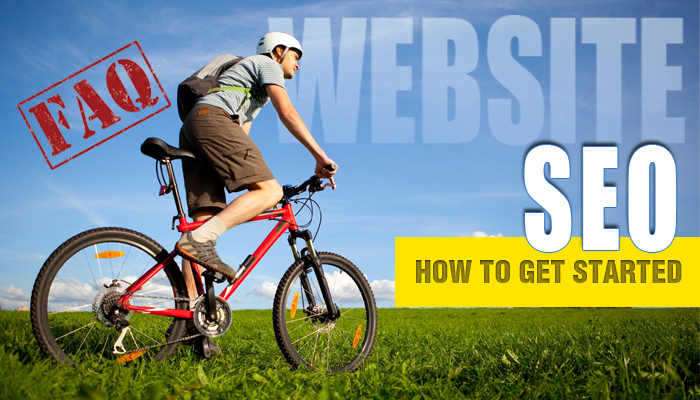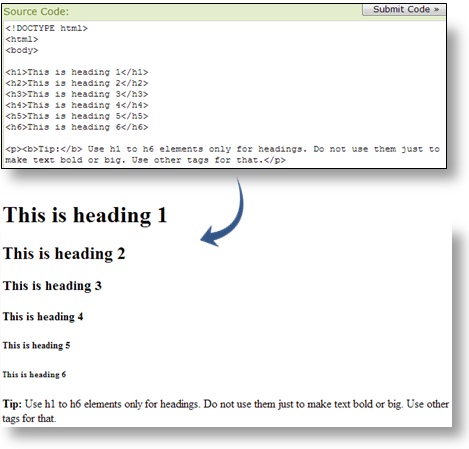Our last webinar on “How to get started with Website SEO” was a great success, thanks to the active participation of our attendees. Just in case you missed the webinar, below is a compilation of a few of the most important questions that were asked.
Question 1
Can Google’s Hummingbird detect natural patterns in search data and store them?
Let me rephrase this question for our readers: “Does Google Hummingbird understand the intent of the person asking the question and then provide results?”
Google’s question answering system has always been revolutionary and top notch. To this question, I will say, YES, Google does reads minds. However, as of now, Google’s function of understanding search intent is mostly limited to voice search and not keyboard search. Voice search is much more intuitive than keyboard search. Google Hummingbird does detect natural patterns and store them.
Question 2
How can I maximize my social presence on Google+ so that my content ranks higher?
When you search for something on Google, Google+ has an important impact in the search. One, yes, it is a Google product and two, it has been structured in a way that is at par with other social network sites. For website SEO, here are few things that you need to keep in mind:
i. Use Google authorship to help your content stand out, authenticate it, add a ‘human’ touch to it and increase trust among your readers.
ii. Make sure that your Google+ account is active and your profile is up-to-date.
iii. Share informational and relevant content on your account.
iv. Also make sure that the content you post on Google+ is relevant for search terms (keywords) that you want to rank.
v. Add attractive images to all your posts (a good sized one, not a thumbnail) and optimize it with your keyword.
vi. Make your posts ‘Public’ unless you are posting something really private for only your friend circles. If your posts are not public, they will not be searchable.
vii. Hashtag your posts on Google+. Use hashtags for the most important categories that your post concentrates on. Now, hashtags also rank in Google search. So, if you search on Google for a term with a hashtag, you will be able to see posts on Google+ using that particular hashtag. Another awesome way to rank then, ha?
Question 3
What should be there in a company blog – content about product only OR content about industry as well?
Its quite obvious, isn’t it? No will search for blog content about a product only. Website visitors read blogs which offer some value or solve their problems. Your blog content should be relevant to what your customers are looking for or offer solutions to their business problem/queries. This way your content will be easily discoverable.
Question 4
If I have a guest blogger post content on my website, how do I make Google understand that he is the author of that write -up?
The answer is simple. Google Authorship! So when you have a post by a guest blogger, Google Authorship will allow you to link the content to his/her Google+ profile and add a head shot image of the author which will appear next to the content in Google search. Here is how one of my blogs is seen in Google searches.

So no matter where my blog surfaces, it will always come with Google Authorship.
Question 5
Which is more SEO friendly – Wordpress or Blogger?
Although creating blogs on Blogger is a breeze…they have a very user-friendly DIY drag-and-drop user interface and you need no HTML knowledge to set up blogs, but, in terms of website SEO, Blogger is not your best bet.
But then again, saying which is better entirely depends on your motive. If you are setting up a business blog with monetization in mind, Wordpress is a definite choice. If your blog is recreational in nature but you want social sharing widgets incorporated in it, Blogger is a great option.
Question 6
What is best for SEO – Forum OR Blog?
Blogs need maintenance, regular posts but are a very effective way to drive traffic and earn revenue. On the other hand, forums take a very long time to start earning revenue, but new content fills in automatically with readers asking and answering questions, starting debates and arguments. Keeping website SEO in perspective, blogs are better. When posting a blog, you can add keywords keeping SEO standards in mind, but when people participate in forums, they necessarily do not add the right SEO keywords & phrases.
However, if you have a blog with very active readership, then creating a forum will only act as a catalyst to add to your website SEO and shoot up your rankings. For perfect website SEO, my suggestion would be a combination of both.
Question 7
How to check website performance in reference to SEO?
Start with the Google Webmasters Tools which will provide you with detailed reports about your pages’ visibility on Google.
Question 8
Forum Profile Creation for website SEO: How to go about it?
Try and become a senior member by being active in 3-5 forums in your niche and contribute to them genuinely. (Any genuine forum will anyhow not allow you to use their platforms for posting backlinks).
Question 9
In an article, what is the ideal position to insert a hyperlink? How many links should be inserted?
This completely depends on how relevant the hyperlink is. Refrain from inserting too many hyperlinks unnecessarily in your content.

Like you see in the image above, I have inserted hyperlinks in my blogs only where they are deemed necessary and not ‘stuffed’ them.
Question 10
Ad heavy content (several ads above the fold) is seen as a ‘negative signal’ by Google. Hence, should the first fold have content only and second fold include all images and graphics?
Google’s ‘page layout algorithm’ targets any page with too many images in the first fold. Google’s primary objective is to provide quality content to readers and not serve a plethora of ads to them. Therefore a page with too many ads in the first fold triggers a negative signal to Google and it affects SEO. However, this does not mean that you don not use images at all. Just make sure that your page is well balanced.
Question 11
There are people copying content from one website and posting it on their own. The website which is indexed first is considered as the owner of the content, right?
Yes, that’s absolutely right. If you have been blogging for a while, you must be aware of the term content scrapping – websites that take your content and post them in their own blogs without your permission. Here’s how you can stop content scrappers:
a. Set up Google Authorship
b. Check if your content was cached by Google or not when you published it.
c. Contact the site that is stole your content and let them know that you want your content removed at the earliest.
d. Use Google Alerts to get immediate notifications when someone republishes your content
e. You can block them if you know the IP address from which they are operating.
f. Use CopyScape: duplicate content-detecting service
Question 12
Is writing different ways of a word, ‘Grade VI, Grade 6th, Grade Six’ in various pages considered duplicates?
My suggestion is to use all sets of keywords somewhere in the content, main title, sub-headlines and content. Figure out which one has maximum searches and use that more prominently either in meta tags or H1 and the second phrase in the content.
Question 13
Does social sentiments affect ranks? For example, will any negative comment on social media affect ranking?
Negative comments in social media does affect branding, but these are not essentially counted as social signals (Google+ authority, Facebook likes, Twitter followers etc). It only affects the rankings of certain keywords which are not desirable. An example of this would be: using the term”XYZ Scam”.
Question 14
What are the ways in which we can utilize social media to get traffic for our website?
Here are a few ways in which you can use social media to drive traffic to your website:
a. Create a Facebook page for your blog. This is a great way to not only generate traffic, but also means of expanding your content.
b. Share content on Facebook and Twitter regularly. You can even schedule your content for later posting using various tools.
c. Share your content on social bookmarking sites like DIGG, Stumbleupon, Delicious etc.
Here are a few terminologies that were asked:
Question 15
What is Link Wheel Strategy?
Like the name says, a link wheel strategy is a set of links which are interconnected with each other, work around the main site to increase its SEO. Marketers use link wheel strategy to gain visitors and get more customers. This is how it functions.
| Site 1 links to Site 2 and back to Target Website
Site 2 links to Site 3 and back to Target Website Site 15 links to Site 1 and back to Target Website |
The Target website is the site which is trying to increase search engine exposure.
Question 16
How does link wheel strategy work with content re-purposing?
If your SEO strategy is based only on link wheeling, trust me, you will not go very far. I strongly recommend that you DO NOT practice link wheel strategy (not even for content re-purposing).
Question 17
What are H1, H2 tags?
When you are creating content on HTML, H1 and H2 are headings. This is how it looks. The image on top are the HTML codes and when they are embedded, they give what we see below:
If you are using a CMS like WordPress, inserting headlines are cakewalk.
Question 18
What are purchased low quality links?
There are directories and blogs which are designed specifically to provide links. They do not add any value to anyone and are not even manually edited. Information put on such sites is not verified and owners of these sites sell the links.
Question 19
Organic SEO v/s Inorganic SEO
| Organic SEO | Inorganic SEO |
| Also called Natural SEO, this is an inexpensive form of SEO | Also called Artificial SEO, this is is slightly more expensive than its counterpart |
| Takes longer to execute but yields long lasting results | Yields quick results by pumoping your ranking and placement higher. However, effects get less effective in long run |
| Focuses on content, link building, meta-tag optimization and keyword enhancement | Concentrates on search engine marketing – Pay per click ads, paid advertisements and affiliate marketing |
| Attracts 80% of search traffic | Good form of website SEO if marketer is in hurry to target customers & enhance his/her brand awareness |
| (TIP: Having a good blog is an easy and sure shot way to amplify Organic SEO rank) | This form of website SEO needs tuning all the time and ranking plummets the moment you stop it |
Question 20
What are Hashtags?
A Hashtag is a word or a phrase prefixed with the symbol ‘#’ and it labels groups or topics. It is a certain form of tagging most often seen on social networking and microblogging sites. Hashtags are a means of grouping messages which can be searched for later. Hashtags are used in Facebook, Twitter and Google+ and like I have already mentioned above, Google even ranks Google+ hashtags.
An example would be: New Artists Announced for #SXSW 2012 Music Festival!
There were so many question posed at us that we have divided this article into two segments. Stay tuned for the next post. If you have doubts in this article, do leave me a comment. I would love to answer your queries.








